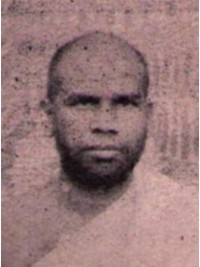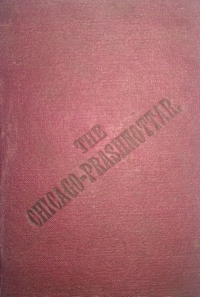95. Question:
As the Tirthankar also is bound by the karmas. He can do nothing without karmas. Hence why should he be believed to be God?
Answer:
No one in the world (except Jainas) believes in such God as arhat who has been free from 18 defects and who possessed such qualities as infinite knowledge etc. real happiness etc. Consequently the arhat himself is Parmeshwar and none else. The people in general believe in God to be the Lord of the universe like sovereigns. But according to their own allegations no God as believed in by them has been proved to be free from 18 faults. On the other hand, according to their Shastras, God is partial, cruel, ignorant, passionate, proud, ill-tempered, unjust, wicked, incompetent and powerless.
96. Question:
How can we believe that Arhat Parmeshwar was free from 18 defects and that the avatār of God believed in by others had those faults?
Answer:
My dear Sir, leaving aside prejudice, read the lives of Arhats and other avatārs etc. and see their images noticing their conduct, thoughts and appearance; from this you would learn which of them was faulty and which faultless.
97. Question:
The Jainas have written well about their Tirthankaras and have also made their images shānt (contented), dānt (mild) nirvikāri (without change of mind or purpose), aloof from woman, of desireless forms.
Answer:
This idea of yours is wrong in as much as none prevented the writers of your sacred books from writing the good qualifications of your avatārs and none told them to write the bad qualifications of your avatārs such as a certain avatār had intercourse with another's wife, another avatār wandered with one's (sister), another avatār wandered in the jungle on account of his separation from his wife, another avatār being naked danced before a Rishi who gave him a curse whereupon his male organ was broken into pieces, another avatār caused a battle to be fought and was himself engaged in it, another avatār caused falsehood to be spoken, another avatār was tired of going, another avatār went to eat gular fruits and not finding the fruits on the trees gave it a curse to be dried up and it was dried up, another avatār infused life in a dead body, at the time of his death had himself hanged, wished to remain alive but could not, died when the time of the death arrived, could not remain alive till now, that God created people of a certain community when those people did not act up to His dictates, He repented and having become angry destroyed certain cities and gave so many Curses etc. Many such statements are found in their books. Had not those avatārs possessed those qualifications, the writers would have not made a mention of those improper things. The writers were not their enemies on account of which enmity they might have written improper things. If they wrote falsely their books are not to be accepted. Thus it has been fully proved that the avatārs of the people were of such character as mentioned in their books. Bharatrahari praises Cupid for having made slaves of the highest gods when they are attacked by the amorous dances of pretty and charming women.
Consequently the writers of the times of the 24 Tirthankaras wrote their lives just as they actually were. Thus the biographies and the images of the avatārs fully prove their faults and faultlessness.
 Shrimat Vijyasandsuri
Shrimat Vijyasandsuri
